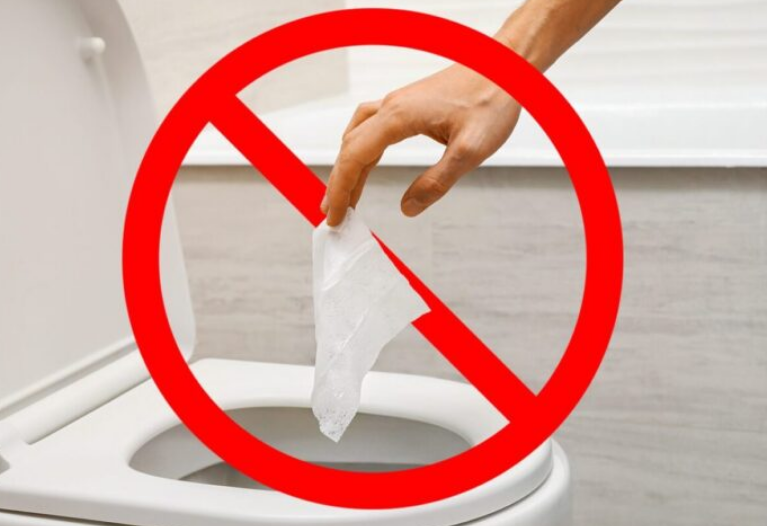ROCHESTER - For the second time in less than six months the Department of Public Works has had to once again plead with Rochester residents "to STOP" flushing non-woven wipes down the toilet, because they more often than not clog the city's sewer system and cost taxpayers tens of thousands of dollars to combat the problem.
These wipes, often labeled as "flushable," contribute to sewer backups, environmental violations, and increased maintenance costs despite leaving household plumbing without issue.
Non-woven wipes, including baby wipes, cleaning wipes, and disinfecting wipes, are durable, single-use products that accumulate in the sewer system, creating significant challenges, according to a statement from the DPW. Some of the most common issues include:
Sewer system overflows in multiple neighborhoods.
Increased maintenance costs, including equipment replacements and staff overtime.
Rising sewer rates for residents.
Health and safety risks for city employees tasked with clearing blockages.
The City of Rochester refused to specify how much city taxpayers are paying to mitigate the problem locally, but a statement released on Thursday noted that utilities across the nation spend more than $1 billion annually in maintenance and repairs due to the flushing of wipes.
The Rochester Voice reached out to city officials, including DPW Chief Peter Nourse, to try to quantify the amount of money city residents are paying to combat the problem here, but no additional info was released. But if it's a billion across the naton, it could be millions in the Lilac City.
The only directive the city continues to make is to plead with residents to dispose of wipes in the trash, even if labeled as "flushable."
More info can be found at www.rochesternh.gov/public-works













